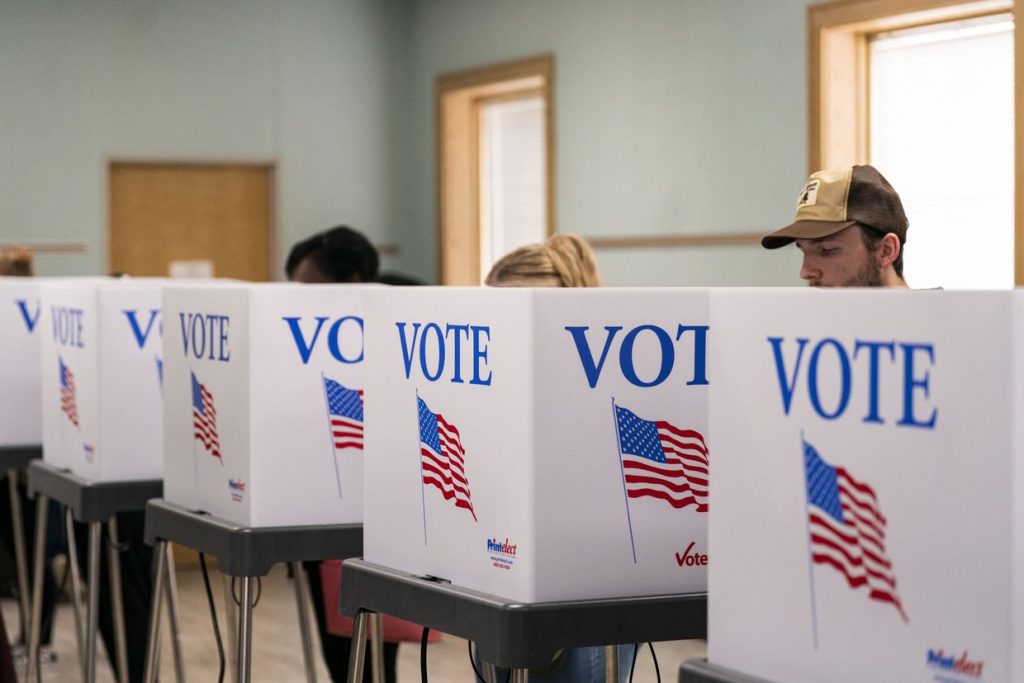Russia’s interference in the U.S. election is expected to intensify, with a focus on swing states, according to U.S. intelligence agencies. As Americans head to the polls to choose between Democratic candidate Vice President Kamala Harris and her Republican challenger, former President Donald Trump, foreign adversaries, particularly Russia, are conducting influence operations to undermine public confidence in the election. U.S. intelligence agencies warned that these activities will likely increase through election day and in the coming weeks, with a focus on swing states. Russia has been accused of spreading disinformation online and using other malicious methods to undermine the election process.
In a recent statement, U.S. intelligence agencies highlighted specific instances of Russian influence actors spreading false information to undermine the Democratic ticket. Pro-Russian actors reportedly amplified an article falsely accusing U.S. officials of planning electoral fraud in swing states, while also posting a video depicting a fake plot involving overseas ballots and voter roll manipulation to favor Harris. Additionally, a pro-Trump online influencer admitted to being paid by a pro-Russian propagandist to post fake videos of Haitian immigrants claiming to vote. U.S. intelligence also accused Iran of engaging in malicious cyber activities aimed at undermining Trump’s campaign.
The outcome of the U.S. election could have a significant impact on the Russia-Ukraine conflict. While Harris has pledged continued support for Ukraine in its struggle against Russia, there are concerns that Trump might seek to strike a deal with Moscow, potentially at the expense of Ukraine. As Americans cast their votes, Ukraine is nervously watching the election, as the result could determine the country’s fate in its fight against Russia’s ongoing invasion. The differing pre-election positions of the two candidates on supporting Ukraine add an extra layer of uncertainty for the country.
The tensions and potential implications extend beyond just the Russia-Ukraine conflict, as the U.S. election has broader geopolitical consequences. The relationship between the U.S. and Russia could pivot in different directions depending on the outcome of the election. With Harris promising continued support for Ukraine and a tough stance on Russia, there is a possibility of escalating tensions between the two countries if she were to win. Conversely, if Trump prevails, there are concerns that he might pursue a more conciliatory approach towards Russia, potentially overlooking aggression in Ukraine.
The ongoing interference in the U.S. election by foreign adversaries underscores the vulnerabilities in the electoral process and the larger issue of disinformation campaigns. The spread of false information, manipulation of social media platforms, and cyber attacks are all tools used by malicious actors to undermine the integrity of democratic elections. As U.S. intelligence continues to monitor and expose these activities, it highlights the importance of strengthening cybersecurity measures and promoting media literacy to safeguard the electoral process from external influence.
Ultimately, the outcome of the U.S. election will not only shape the domestic landscape but also have far-reaching implications for international relations, particularly concerning conflicts like the one between Russia and Ukraine. As the world watches the results unfold, the choices made by American voters will have ripple effects across the globe. The ongoing efforts to undermine the election by foreign adversaries serve as a stark reminder of the challenges faced in ensuring free, fair, and secure democratic processes in the digital age.















